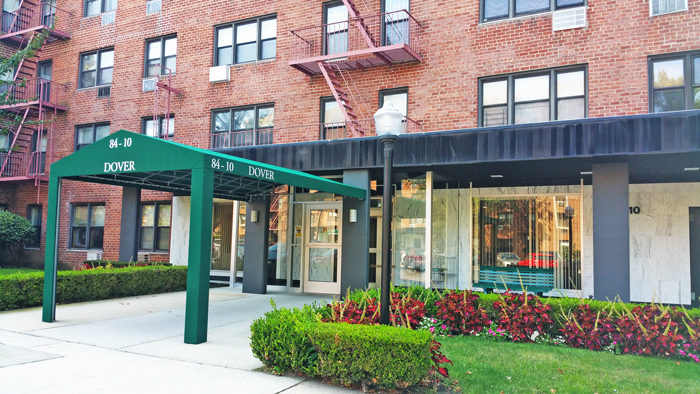File Photo
Fifteen New York elected officials this week sent a letter to the Treasury Department and the U.S. Small Business Administration demanding that housing cooperatives, such as the Dover in Lindenwood, are eligible for Paycheck Protection Program loans.
By Forum Staff
The Trump administration must clearly state that housing cooperatives are eligible for Paycheck Protection Program loans, Empire State elected officials demanded Tuesday in a letter to the Treasury Department and the U.S. Small Business Administration.
According to the 15 legislators, co-ops rely on a steady stream of revenue to pay maintenance and building staff, conduct repairs and maintain facilities. During the COVID-19 pandemic, financial hardship has been compounded by confusion surrounding whether housing co-ops are eligible to apply for PPP loans, which are forgivable if a borrower meets certain criteria. The agencies charged with implementing the program have issued conflicting guidance over the eligibility of housing cooperatives for PPP loans.
“In New York City alone, there are nearly 100,000 cooperative housing units, providing affordable, middle-class housing to thousands of New York City, Long Island, and Westchester residents,” the lawmakers wrote in their missive to Treasury Secretary Steve Mnuchin and SBA Administrator Jovita Carranza. “Lost or deferred cooperatives fees from its member-owners, coupled with increases in utilities due to the stay at home orders, have made it increasingly difficult for these cooperatives to maintain their employees.”
Congress enacted the Coronavirus Aid, Relief and Economic Security Act in March to provide economic relief to small businesses and eligible nonprofits with the intent to keep employees on staff. The elected officials noted in their correspondence that on April 2, SBA issued an interim final rule that stated that residential co-ops were ineligible for PPP loans. However, the Treasury Department’s Frequently Asked Question No. 35 notes that, “As long as other PPP eligibility requirements are met, small agricultural cooperatives and other cooperatives may receive loans.”
“We respectfully request that you clarify the conflicting information by expounding on the response to FAQ #35, and clearly state that housing cooperatives are eligible for PPP loans and any related benefits,” the legislators wrote to Mnuchin and Carranza.
“Co-ops are an integral part of our communities in Queens and New York City, serving as homes for many hardworking middle-class New Yorkers,” Rep. Grace Meng (D-Flushing) said. “Last month, I urged Secretary Mnuchin and Administrator Carranza to make them eligible for loans under the Paycheck Protection Program, and today, I renew my call in this latest effort to secure relief. Like many other entities, co-ops are being impacted by the COVID-19 outbreak, and Secretary Mnuchin and Administrator Carranza must act to ensure their future stability.”
The Heroes Act, the fourth COVID-19 aid package which was approved by the House earlier this month, explicitly includes provisions to extend PPP eligibility to housing co-ops, the pols noted.
“My district has a large number of co-ops and they deserve to be treated fairly under the law,” Rep. Engel (D-Bronx and Westchester) said. “The CARES Act has provided critical assistance through the Paycheck Protection Program to small businesses, but so far housing cooperatives have not received similar federal assistance. The cooperatives themselves—which have employees and operating expenses just like any small business—should be eligible for the same relief made available to other small businesses, including through PPP assistance and loans administered by the Small Business Administration.”

